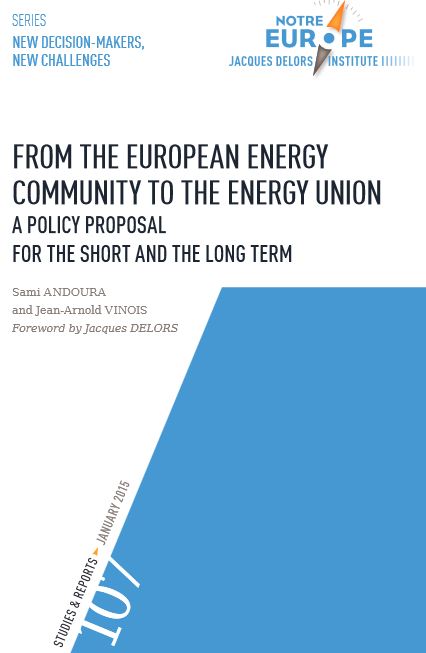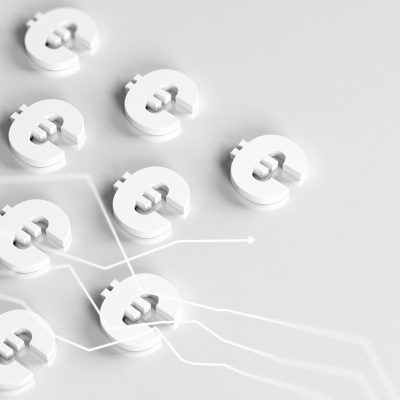From the European Energy Community to the Energy Union – A new Policy Proposal
Based on Jacques Delors’ 2010 policy proposal for a “European Energy Community”, this report by S. Andoura and J.A. Vinois attempts to bring forward-looking ideas and key areas for action to achieve an ambitious and inspirational Energy Union.

The new concept of Energy Union, which has been advocated by the new EU leaders, without giving it a concrete content yet, opens a wider debate on the future challenges to be addressed in the field of energy.
Ahead of this debate and the upcoming European Commission’s initiative, Jacques Delors Institute launches a new policy proposal calling for a bold and forward looking Energy Union as a long-term European energy transition project. Introduced by Jacques Delors and written by Sami Andoura and Jean-Arnold Vinois, this new report goes further than the original policy proposal for a “European Energy Community” initiated in 2010 by the former president of the European Commission and the Institute’sin-depth study of the future of European energy policy.
Indeed, four years later, the adoption of the 2030 Energy and Climate Framework by the European Council and the start of a new EU political and institutional cycle in 2014 give the chance to assess the state of play of the European energy policy and to identify the necessary new paths to ensure the desired European integration and reap all its benefits.
This new report examines the evolution of the European energy policy from 2007 to 2014, including the most recent developments and the adoption of a new 2030 EU Energy and Climate Framework. The strengths and weaknesses of the European energy policy are identified and assessed in thirty findings.
Relying on the conclusion that the existing European energy policy requires additional measures, the report suggests the three key objectives to be achieved in priority by a comprehensive European energy policy. It expresses ten meaningful recommendations for action, together with concrete remedies, policy instruments and institutional frameworks that should be implemented in the short-term within the new EU institutional cycle.
Last but not least, it attempts to bring forward-looking ideas and 10 key areas – building blocks – for action to achieve an ambitious and inspirational Energy Union, and to make it a fundamental element of the solidarity between the Member States within the European Union and beyond in Europe.





